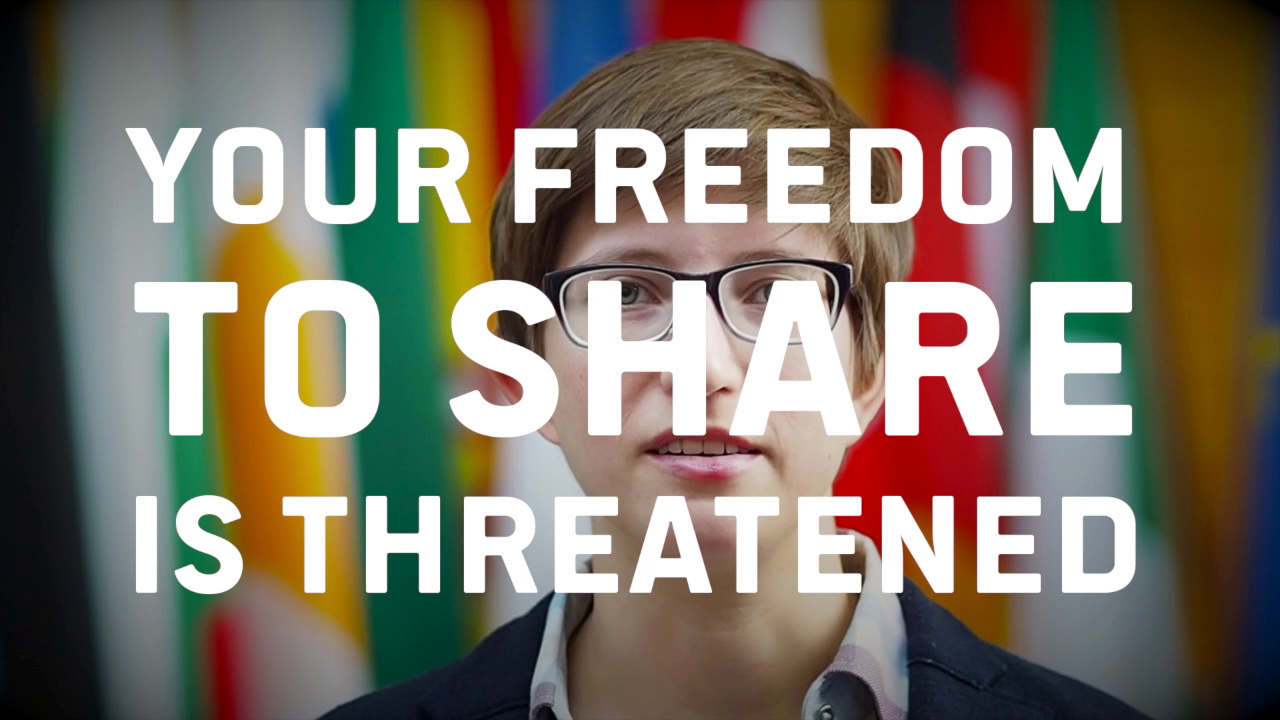For months now I’ve been raising the alarm about the plan to limit the freedom to link that has been slowly but surely making its way through the EU legislative process.
The European Commission and the publishing lobby have accused those of us fighting to save the link of exaggerating the danger that the planned extra copyright for news sites poses.
The link wasn’t under attack, they assured us.
But it has now become undeniable that it is.
Breaking the web
Today, a new lobby joined the fray – but apparently didn’t get the memo about sugar-coating the game plan. In an open letter published in Le Monde – but, fittingly, behind a paywall – large news agencies including Germany’s DPA und France’s AFP call for the extra copyright to also extend to their products. They mince no words describing what they demand politicians crack down on:
They offer internet users the work done by others, the news media, by freely publishing hypertext links to their stories. […] Solutions must be found. […] We strongly urge our governments, the European parliament and the commission to proceed with this directive.
They fully intend for this law to break the web.
Tweet this!
There it is, black on white: They fully expect and intend for this law to break the core functionality of the web. They want to outlaw pointing to their articles without their permission. They want to charge for incoming links.
The letter suggests their concern is primarily with links from two particular sources: Facebook users and Google. But the law doesn’t discriminate – all links to news websites on the web would be affected by it in the same catastrophic way.
Killing innovation
Prof. Höppner, a professor of commercial law and IT law, and the lawyer for German publishers in a case against Facebook and Google, was similarly forthright at a hearing at the European Parliament last week:
This is a prohibition right. It is a right that makes sure there are not platforms coming up everywhere and anywhere that take advantage of content that has been published and make their business out of it. The first and foremost goal is to prevent these exploiting businesses – simply not have them.
(Watch the video recording )
This exposes the other goal the big publishing conglomerates hope to achieve: Killing off competition in the news sector. They don’t even want to give innovative startups the chance to pay their link ransom – they want to stamp them out.
Big publishers want to turn back time to an era in which people were loyal to a single newspaper they had a subscription to. They want visiting the front pages of their brands’ websites to be the only way we can find out what’s happening in the world. That requires eliminating apps and sites that provide what many readers prefer: A selection of links to news from multiple sources tailored to one’s personal interests.
Big publishers vs. everyone else
The fault line here does not run between journalism and online platforms, as lobbyists like to paint it: It’s between a few giant publishing houses and everyone else. Aggregators and social networks have created a level playing field that has allowed smaller, independent and special-interest news sources to grow. These sites reach the majority of their readership via links on social media and search engines, rather than through direct visits to their websites.
Unsurprisingly, innovative publishers and startups are up in arms, warning that the planned law, promoted as ensuring media diversity, would end up achieving the exact opposite: media concentration.
It’s nothing short of an attack on the open web
Tweet this!
Requiring permission for links and suppressing new ways to stay informed: The extra copyright for news sites is nothing short of an attack on the open and decentralized web – in concert with the plan to force online platforms to install censorship machines.
It’s true that the news industry is in financial trouble. We need to think creatively about how uncompromising, in-depth journalism can be funded in the future – we certainly need it more than ever. But breaking the web and killing innovation is unacceptable, and would actually backfire on quality journalism and reduce media pluralism.
There is an alternative
The European Parliament and the Council will make a decision soon – between this law and a sensible alternative. Called the “presumption rule”, it would help publishers enforce existing copyrights without restricting linking.
The presumption rule fulfills what the European Commission has all along claimed to be the purpose of the law. Now that no doubt remains that the publishing lobby’s intentions go much further, the Commission needs to put its cards on the table: If it continues to push for the neighbouring right, it confirms that it too wants a “link tax”. If the goal is merely to allow publishers to enforce copyright, like they say, they should support the presumption rule.
The crucial vote is coming up in the Legal Affairs Committee (see the schedule here). In that committee, the conservative EPP group, the spokesperson for the liberal ALDE group and French S&D group members support the extra copyright. In the Council, the governments of France, Germany, Spain and Portugal are pushing for it.
If you are against this plan, the SaveTheLink campaign has a tool to contact your representatives – and spreading this article via links is and will stay free.

To the extent possible under law, the creator has waived all copyright and related or neighboring rights to this work.
Look’s like England will get the worst of it. I t must continue to obey European laws but now has no voice in Europe to change unfair laws like this one!